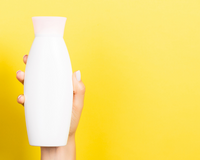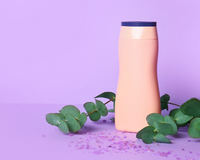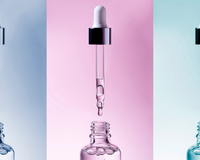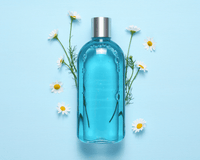Black natural hair products are used commonly. African American hair has a wide range of textures and thicknesses, making it quite versatile. A curly or spiral form is common, with free or tight curls. This is related to the hair follicle's form. Those with curly hair have curved hair follicles whereas those with straight hair have spherical ones. When it comes to Black hair, there are certain major differences from other types of hair. Cuticle, or the outer covering of a human hair, is what protects it from damage. Black hair has a thinner cuticle layer than other hair types, according to a 2015 study, which implies that strands may break more readily.
Diverse and adaptable, black hair may be worn in a variety of different styles. In order to prevent dryness and breakage, it is important to treat the hair carefully and to keep it moisturized. Always be on the lookout for scalp-pulling products, treatments, and styles. An expert in black hair care may be able to help anyone who notices their hair becoming thinner, thinned or shedding excessively.
Black Natural Hair Products
African American individuals have 90,000 hair follicles on average, compared to 120,000 for white people. A person's scalp may be easier to see as a result, and hair loss may be more visible. Hair and skin are kept moisturized by sebum, which is produced by the scalp. As it travels down the hair shaft, it seals in moisture. When the hair is straight, the procedure is easier, and wavy hair is more prone to drying.
Because not all shampoos are made equal, it's important to choose a cleanser that can eliminate debris and buildup without stripping your hair. For curly hair of all types, moisturizing shampoo is the perfect first step to bouncy curls that pop. In place of harsh chemicals like sulfates and parabens, aloe vera, coconut oil, and honey infuse your hair with moisture-rich nutrients like aloe.
How to Use Black Natural Hair Products?
Protective and moisturizing products can help keep fragile or dry hair healthy. People who are concerned about these topics may want to try:
Washing tightly coiled hair just once a week or fewer is recommended by the American Academy of Dermatology (AAD). This can remove care products and some sebum, which can cause the scalp and hair to dry out if done frequently enough. Seborrheic dermatitis (dandruff) and other scalp disorders may necessitate more frequent hair washing for those who suffer from them. You may be advised to wash your hands every other day by an expert dermatologist.
Choosing a shampoo is also crucial. However, there are anti-dandruff products that contain sulfates, which deplete natural oils and dry out the hair, which makes it more difficult to brush and more prone to break. To keep the ends of your hair moisturized between washes, look for mild, moisturizing shampoos. Then lightly massage the scalp as it's being washed. Instead of rubbing the hair, pat it dry with a towel. Additionally, a person may want to attempt deep conditioning or oil treatments once or twice a month, in addition to conditioner. Hair is hydrated as a result of this.
The hair and scalp should be moisturized with a deep conditioner or natural oil, such as jojoba, after washing. Towel-dry the hair for up to 30 minutes. Choose an oil that melts at body temperature while using it. This eliminates the need to pre-heat the oil before to use, which saves time. There are a variety of oils that may be used on the scalp including jojoba, shea butter, and emu oil.
Other Things To Consider About Black Hair Maintenance
While the hair is still damp, comb it. Curly hair is prone to tangling and breaking when brushed. To avoid damaging textured hair, avoid combing it when it's dry. On wet or damp hair, use moisturizers and leave-in conditioners. Section the hair. Using gentle strokes, detangle each part of hair with a wide-toothed comb or detangling comb, focusing on the ends first. As you work your way up the hair shaft, untangle each area one at a time. A spray bottle loaded with water can be used to dampen the hair if it is not already moist.
During sleep, hair can be rubbed and damaged. It's important to note that some textiles might absorb moisture from the hair and scalp. This may be avoided by removing any tight hand bands before going to bed. To prevent friction, wrap your hair with a silk or satin scarf. Use a satin or silk pillowcase.
Styling Ideas And Tips for Black Hair
The split ends of every strand of hair occur throughout time. Regularly trimming the ends of your hair may help maintain it healthy and encourage it to grow. Further, a person could try to heat might open the door to a broad range of styles beyond the basic upkeep that is necessary. Hair curling irons and heated rollers can be used to produce loose curls or waves on the hair. A hot straightener might also be used. Be aware, however, that heat dries the hair and might cause it to become damaged in the long run.
When it comes to heat styling, using ceramic-coated tools might be beneficial. Utilize the lowest possible heat setting. Keep your hands away from the hair until it's clean and dry before you begin.
There is a wide range of braided hairstyles to choose from. Depending on the person, basic braids may last for a day or weeks, while more intricate braids may last for months. A too-tight knot on the other hand, can cause breakage, discomfort, and hair loss (traction alopecia) since it pulls on the scalp. This type of alopecia develops when the hair falls out as a result of constant strain. A person's hair loss can be reversed if they obtain therapy early, but if they continue to wear tight styles for a lengthy period of time, the hair will not regrow. Hairstyles with low tension that do not pull on the scalp can be used to treat traction alopecia therapy.









